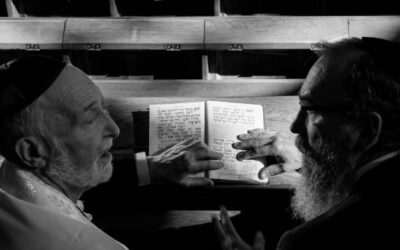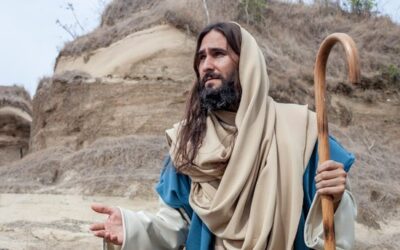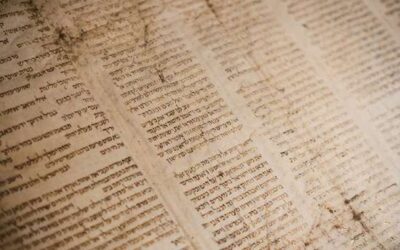During Jesus’ ministry on earth, He selected certain individuals to help with and continue His work. They would be referred to during that time as His “disciples.”
Jesus’ choices were interesting: 12 individuals from different places, professions, and positions became His inner circle. They left their homes and jobs to walk with Him, live with Him, and learn from Him. Almost like apprentices.
Jesus trained His disciples to understand His mission as the Messiah and then to establish the early Christian church that would spread His gospel message all over the world.
This was a big undertaking for these selected human beings. So let’s take a closer look at:
- What it means to be a disciple
- Why Jesus chose disciples
- How God used His disciples
- A profile of each of His disciples
What is a disciple?
Generally speaking, a disciple is a committed follower of an influential person. But discipleship is more than just following someone’s ideals or agreeing with their philosophy.
A disciple typically has a deeper reason for following someone, often with the intent of learning from that person and exemplifying what they stand for.
While that was certainly the case for Jesus’ disciples, following Him went even deeper than that. Being His disciples meant a close, personal relationship with Him as well.
They didn’t just follow Jesus around and listen to Him preach. Their involvement with Jesus encompassed their whole lives.
Why did Jesus have disciples?
If Jesus is the Son of God, why did He need humans to follow Him around and work for Him?
God is relational and His message is relatable
We were created to live and learn about life in the context of relationships. When God chose His disciples, He chose individuals who were willing to enter into a life-changing friendship.
Many of the principles He taught during His earthly ministry had to do with how to treat one another, how to break down unnecessary barriers, and how people’s actions should be based on love rather than on hierarchies or traditions.
Often, His own disciples were the ones who needed these lessons most. And through their learning experiences, we all get to learn from them as well.
And because of this, everything Jesus talked about could more easily be related to our daily human struggles. We can understand complex principles and virtues because we get to read about how things played out when Jesus was teaching these things to His disciples.
And through the way Jesus taught and nurtured His disciples, we get to see a glimpse of what God the Father is truly like (John 14:6, 9).
They reveal human potential
Jesus often chooses humans to be part of His plans in special ways. It demonstrates to us all that anyone can be used by God, and we all are given unique gifts that help show the love of Jesus to everyone around us.
God knows that any one of us ordinary people can do extraordinary things if we allow His power to work within us. This was evident in the lives of many of His disciples.
Jesus even commanded them to do things that no other human can do:
“And when He had called His twelve disciples to Him, He gave them power over unclean spirits, to cast them out, and to heal all kinds of sickness and all kinds of disease” (Matthew 10:1, NKJV).
“And as you go, preach, saying, ‘The kingdom of heaven is at hand.’ Heal the sick, cleanse the lepers, raise the dead, cast out demons. Freely you have received, freely give” (Matthew 10:7, 8, NKJV).
Giving all the glory and credit to God, His disciples showed “signs and wonders” (Acts 2:43; 5:12) and healed many (Acts 3:1–11; 3:16; 5:15, 16; 9:36–43).
And starting with only these 12 people, the gospel began to spread all over the earth.
They demonstrate spiritual growth through God’s patient love

Photo by Francesco Gallarotti on Unsplash
The 12 called by Jesus early in the New Testament involved themselves in vital ministry work. But they also doubted (John 20:24–29; Mark 16:11–13). They were also stubborn, perhaps spiteful, possibly power-hungry in moments.
And—even after witnessing the ministry of Jesus for several years—one denied his association with Him while others failed Him (Matthew 26:31–35). One would ultimately betray him (Luke 22:1–6).
But Jesus didn’t give up on them. Instead, every tough situation they went through, He made sure they came out of it stronger. They learned so much as Jesus’ disciples. Even if they had to learn some things the hard way.
He transformed the disciples through the power of love and forgiveness. They, in turn, helped transform the world.
Following Jesus’ death and resurrection, the disciples shared their faith as far as possible—making more disciples of Jesus in the process. They traveled throughout the Roman Empire, through Asia Minor, and beyond.
How did He choose the disciples?
At the beginning of His ministry, He chose the twelve disciples carefully and prayerfully with His Father’s help.
“Now it came to pass in those days that He went out to the mountain to pray, and continued all night in prayer to God” (Luke 6:12, NKJV).
When he returned from praying,
“He called His disciples to Himself; and from them He chose twelve whom He also named apostles:
Simon, whom He also named Peter, and Andrew his brother;
James and John;
Philip and Bartholomew;
Matthew and Thomas;
James the son of Alphaeus,
and Simon called the Zealot;
Judas the son of James,
and Judas Iscariot who also became a traitor” (Luke 6:13–16, NKJV).
Jesus recruited from His community. The economy was varied, and that variety presented itself among the 12.
He chose fishermen (Andrew, Peter, James, and John).
He enlisted a hated tax collector (Matthew).
He selected at least one who desired to overthrow the government (Simon the Zealot).
One was perhaps of royal heritage (Bartholomew).
The 12 represented various walks of life. And they all left what they were doing so they could follow Jesus.
How did God use the disciples?1
Jesus prepared His disciples in many ways during His brief time with them. He shared all He had with His disciples. His wisdom, His knowledge of heaven, and eventually spiritual gifts were all given.
Bevins, Winfield, “How Jesus Made Disciples,” GCD, June 4, 2012. https://gcdiscipleship.com/article-feed/2012/06/04/how-jesus-made-disciples
Jesus was a living example in His every move. He demonstrated an unshakable faith. The work of the early church would require many in different roles of service. He taught that all disciples were part of His body.
Sharing (impartation).
Jesus equipped the 12 by sharing gifts His Father provided Him. He shared all of His Scriptural and spiritual knowledge. He taught them about God the Father and the Holy Spirit.
In addition, Jesus, working with God and the Holy Spirit, provided the 12 with the power to do miraculous things.
Demonstration.
In everything Jesus said and did, He was an example (1 Peter 2:21). He showed the disciples how to live in every action and word. Jesus walked in complete faith. Through His demonstration, the disciples learned to work together, “fixing our eyes on Jesus, the pioneer and perfecter of faith. For the joy set before Him He endured the cross, scorning its shame, and sat down at the right hand of the throne of God” (Hebrews 12:2, NIV).
Delegation.
Jesus taught His disciples that, when you follow Him, you become part of His body (Ephesians 4:16). Each part of the body has a function. The early church reflected this teaching.
Now you are the body of Christ, and members individually. And God has appointed these in the church: first apostles, second prophets, third teachers, after that miracles, then gifts of healings, helps, administrations, varieties of tongues” (1 Corinthians 12: 27–28).
Who were the 12 disciples?2 3 4
Let’s get to know each of the 12.
Peter (Simon who is called Peter)
Peter, son of Jonas and brother of Andrew, was also known as Simon (John 1:43; Acts 15:14). Peter and his brother were fishermen (Matthew 4:18–19) who lived in Bethsaida and Capernaum. Peter was married when Jesus gave the call to follow Him (1 Corinthians 9:5).
Peter stood out as the leader and spokesman of the disciples. He was the first of the disciples to declare to Jesus, “You are the Christ, the Son of the living God” (Matthew 16:16, NKJV). The Bible shows Peter as a flawed man who denied Jesus in the darkest hours (Luke 22:54–62). Even so, he was redeemed by Jesus before His ascension to heaven (John 21, Acts 1).
Andrew
Andrew was originally a disciple of John the Baptist (Mark 1:16–18). It was Andrew who brought his brother to Jesus (John 1:40). They introduced many to Jesus, who became their greatest purpose. Andrew is described as “living in his brother’s shadow” but was optimistic and bold. He was considered a very passionate speaker for Jesus.
James
James(known as James the Elder, James Boanerges, or James the Greater) was a son of Zebedee and Salome. He was also a brother of John the disciple. James is never mentioned in the Bible apart from John (Mark 1:19–20; Matthew 4:21; Luke 5:1–11). The brothers were fishermen who lived in Bethsaida, Capernaum, and Jerusalem. James was the first of the 12 disciples to face a martyr’s death (Acts 12:1, 2). Preaching throughout Jerusalem and Judea, James showed tremendous courage and forgiveness.
John
John Boanerges (or John the Evangelist) was a fisherman and brother to James. He is referred to as “the other disciple, whom Jesus loved” (John 20:2, NKJV). John is noted for his temper and intolerance but was profoundly devoted to Jesus. His New Testament words speak more of love than any other author. He was exiled to Patmos and, following his release, led churches in Asia. John was the only disciple to not die a martyr.
Philip
Philip came from Bethsaida, same as Peter and Andrew (John 1:44). It is generally accepted that he was also a fisherman. He is one of the first whom Jesus told to “follow Me” (John 1:43). Phillip demonstrated a “healthy” skepticism, a simple faith in Jesus, and a heart for missionary work. Philip preached in Phrygia, Greece, and Syria.
Bartholomew
Bartholomew, also known as Nathanael, was a son of Talmai who lived in Cana. Scholars believe he was the only disciple to come from royal blood. Bartholomew’s name appears in every list of the disciples (Matthew 10:3; Mark 3:18; Luke 6:14; Acts 1:13). The New Testament shows him as a great searcher of Scripture. He preached in Phrygia, Armenia, and India, where he adopted the Book of Matthew into their language.
Thomas
Thomas Didymus, at times called Judas or “Doubting Thomas,” lived in Galilee. He appeared at the raising of Lazarus (John 11:2–16). During the night of Jesus’ betrayal, Thomas’ question prompted Jesus to say, “I am the way, the truth, and the life. No one comes to the Father except through Me” (John 14:6, NKJV). Thomas’ doubts were woven into faith.
Matthew
Mathew (also known as Levi) was a publican or tax collector. Tax collectors were despised, regarded as criminals, and considered no better than harlots and Gentiles (Matthew 18:17; Matthew 21:31, 33; Matthew 9;10; Mark 2:15,16; Luke 5:30). Jesus took a hated man and made him a devoted follower. In addition, Matthew was the first to share His teachings through writing. Several of the 12 would help author what we know as the New Testament books.
James (the son of Alphaeus)
James (the Lesser or Younger), son of Alphaeus, lived in Galilee. He was the brother of Jude and the oldest of the disciples. There is not much information about him in the New Testament. James is present in the Upper Room following Jesus’ ascension to heaven (Acts 1).
Jude (Labbaeus, whose surname was Thaddaeus)
Jude was a brother of James the Younger.
In Mark 3:18 he is called Thaddaeus. In Matthew 10:3 he is called Lebbaeus. In Luke 6:16 and Acts 1:13 he is called Judas. In addition to these names, he was also known as Judas the Zealot. Jesus took a man hungry for power and prone to violence and showed the way of love. Jude passionately spread the gospel of Jesus.
Simon
Simon the Zealot is also known as Simon Zelotes (Luke 6:15; Acts 1:13). He lived in Galilee. Simon is referred to as a Canaanite (Matthew 10:4; Mark 3:18). Zealots were fanatical and full of hatred for Rome. Simon was transformed by his experience with Jesus. He was also in the Upper Room of Jerusalem when Jesus ascended to heaven. He preached on the west coast of Africa and in England.
Judas
Judas Iscariot lived in Kerioth. He was a Judean while the rest of the disciples were Galileans. It is said he was good with money and acted as a treasurer for the disciples. He betrayed Jesus for thirty pieces of silver (Matthew 26:14,16). Instead of seeking forgiveness following this betrayal, he hanged himself (Matthew 27:3–5).

Photo by Jamez Picard on Unsplash
Discipleship is a work of love
The 12 were complicated human beings and carried out a complicated work of love. Their work allowed the early church to flourish and the message to be shared throughout the world. There is hope and salvation through Jesus.
We are also called, in our ordinary nature, to do extraordinary work. We can function as His disciples and continue sharing the message. We have a Savior and He loves all of us. Our sins are forgiven, our shame is unnecessary. He longs to return and be with us forever.
We are no more or less complicated or ordinary than the 12. Their experience with Jesus caused them to grow in amazing ways. We are encouraged to have our own experience with Jesus.
Discipleship causes us to more deeply experience Jesus and His love.
[2] Nelson, Ryan, “Who Were the 12 Apostles? The Complete Guide,” OverviewBible, Sept. 4, 2019. https://overviewbible.com/12-apostles/
[3] “Who Were the 12 Disciples?” BibleInfo, bibleinfo.com. https://www.bibleinfo.com/en/questions/who-were-twelve-disciples
[4] Allyson, Holland, “Who Were the 12 Disciples and What Should We Know About Them?” Crosswalk.com, Jan. 27, 2020. https://www.crosswalk.com/faith/bible-study/who-were-the-12-disciples-and-what-should-we-know-about-them.html
More Answers
Jesus and the Pharisees and Sadducees (Why They Opposed Jesus)
The Pharisees and Sadducees hated Jesus and wanted Him dead. This page looks at who they were and what motivated them to oppose Jesus
The Many Names of Jesus in the Bible and What They Mean
The Bible includes a lot of names for Jesus, and they all reveal different facets of His identity, power, character, and mission.
When Is Jesus Coming Back?
When Is Jesus Coming Back?We don’t know exactly when Jesus Christ will return. The Bible says that no one can know, not even the angels (Matthew 24:36)! That’s why the Bible discourages us from trying to set dates for His return. In the meantime, we’re encouraged to...
After Jesus’ Ascension: What He Did Throughout the New Testament
We first get to know Jesus, the Son of God and our Messiah, by reading the Gospel accounts of His earthly ministry. And after He died for our sins and was resurrected, He returned to heaven.
What the Bible Says About the Second Coming of Jesus Christ
Curious what the Bible says about the Second Coming of Jesus Christ? We’ll cover the key verses and what they mean.
Who is Jesus
Who Is Jesus, and Why Is He So Important to Us? Jesus Christ is the central figure of Christianity. Not only is He God’s Son and our Savior, He: Is who the Bible is all about Can give us eternal life Is part of the Trinity with God the Father and the Holy Spirit Is...
Jesus and John the Baptist: Their Relationship and Ministry
John the Baptist and Jesus were cousins, friends, and close coworkers in ministry. Learn the lasting significance of their relationship.
Does Jesus Appear in the Old Testament?
Before His incarnation, Jesus also played an active role in the redemption and salvation of humanity. Discover the different ways He appeared in Old Testament stories.
Jesus’ Baptism: What It Means and Why It Matters
Jesus’s baptism marked the beginning of His earthly ministry. It was God’s big reveal regarding who Jesus is.
Why Is the Genealogy of Jesus Christ So Important?
Have you ever traced your genealogy back several generations? Did you ever try to find out if your ancestors did anything famous (or infamous)?
Jesus and the Woman at the Well: Breaking Down Barriers
Jesus’ meeting with the woman at the well reveals His heart for hurting people and His desire to break down prejudice. This page looks at how Jesus reached out to her.
Who is The Son of Man in the Bible?
In calling Himself the Son of Man, Jesus confirmed His role as humanity’s savior. Learn what else this title tells us about Jesus.
Who Was Mary, the Mother of Jesus Christ?
Mary, Jesus’ mother, was a humble woman, deeply committed to following God’s will for her life. Learn what the Bible says about Mary and what we can learn from her.
What Does the Bible Mean When It Calls Jesus the Son of God?
When the Bible calls Jesus the Son of God it’s referring to His divinity. Learn what makes this so significant and what it has to do with salvation.
The True Events Surrounding the Birth of Jesus
Jesus’ birth involved many strange events: a pregnant virgin, a stable birth, angels appearing to shepherds, and wealthy visitors. These help us understand His supernatural yet incredibly humble life.
An In-Depth List of the Prophecies About Jesus
How many prophecies of Jesus are in the Old Testament?
Can We Find Jesus Christ In the Old Testament?
Yes, you might be surprised to know that there are hundreds of verses in the Old Testament about Jesus.


















